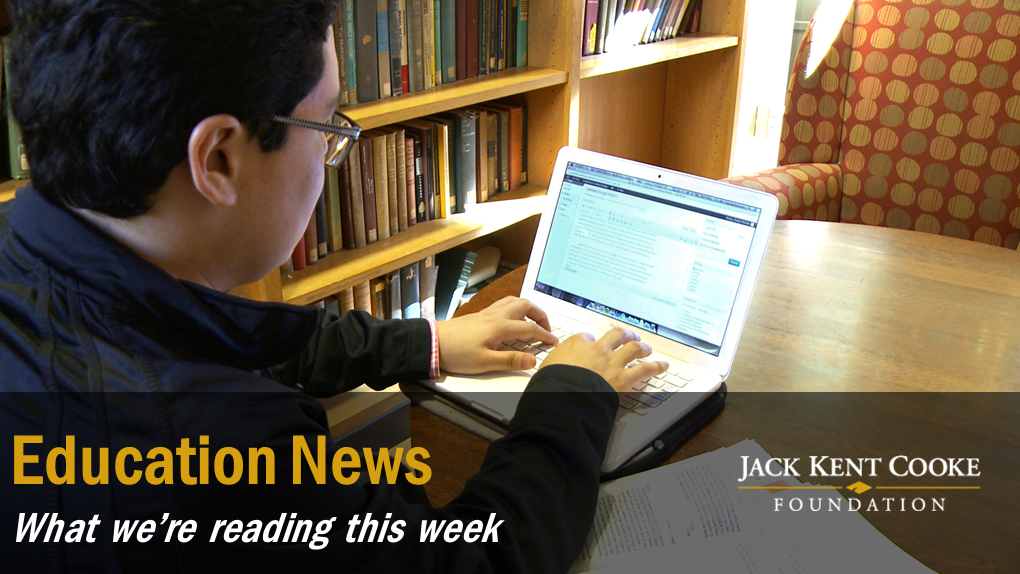June 3: Education News We're Reading This Week

June 3, 2016 –Here’s our weekly roundup of education news you may have missed. Although national high school graduation rates are going up, some gaps still remain. A new focus on reforming “dropout factories” centers on improving the low graduation rates of some colleges and universities.
Elementary and Secondary Education:
-
“According to the most recent data from the U.S. Department of Education, the on-time graduation rate for the nation’s public high schools has reached another all-time high,” reports Education Week. Data show that racial and poverty gaps are slowly narrowing but they still persist, along with a wide range of progress between individual states’ graduation rates.
-
The Society for Science & the Public, facilitator of the prestigious Science Talent Search competition, announces an advocates program to mentor underrepresented students and help them enter research-based competitions. Science details the news and notes the Cooke Foundation’s philanthropic support for advocate stipends.
Higher Education:
-
Even though high school graduation rates are going up, enrollment in college has declined and fewer students are qualifying for aid. The Wall Street Journal (paywall) cites these as contributing factors to next year’s expected $7.8 billion surplus for the Pell grant program. Two congressmen hope to increase maximum Pell disbursements from $5,815 to $6,055 for the 2016-17 school year.
-
“Nearly a quarter of low-income students who score in the top quartile on standardized tests never go to college, and many of the remaining 75 percent who do attend college never attain bachelor’s degrees,” writes College Advising Corps founder and CEO Dr. Nicole Hurd in a blog for the Ewing Marion Kauffman Foundation.
-
How do you approach the problem of low graduation rates? San Jose State University began conducting exit interviews with students who dropped out and now shares some important institutional changes with NPR.
-
A new report from Third Way finds that three-quarters of four-year, non-profit colleges would be considered dropout factories by K-12 standards. The group’s policy recommendations include setting up structures for higher ed similar to the Title I funding and turnaround plans specified by the Elementary and Secondary Education Act.
Cooke Foundation Highlights:
-
Why aren’t high-achieving students celebrated and recruited like student athletes? Executive Director Harold O. Levy questions this dichotomy in The Huffington Post.
-
Cooke Scholar Mardochee Dade is a talented cellist who additionally strives for academic excellence and holds several leadership roles within his community. The Morning Call in Allentown, Pennsylvania describes how this persevering student is now preparing to attend Vanderbilt University in the fall.